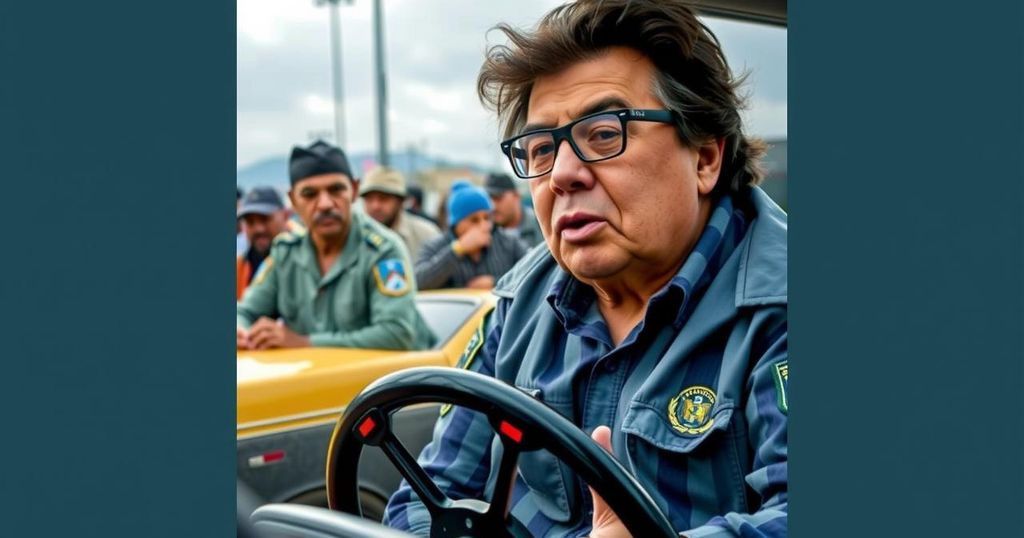Evo Morales Claims His Vehicle Was Shot at Amid Political Turmoil in Bolivia
Evo Morales reported that his vehicle was struck by gunfire, a situation emblematic of escalating political tensions with current President Luis Arce. This incident highlights the ongoing conflict between Morales and Arce, their affiliated party, and broader national issues such as road blockades and economic distress.
Evo Morales, the former president of Bolivia, announced on Sunday that his vehicle was struck by gunfire in an incident that has intensified the ongoing political unrest between him and the current president, Luis Arce. Morales shared a video on Facebook showing himself in the front passenger seat of a moving vehicle, which displayed at least two bullet holes in the windshield, while the driver appeared to have sustained injuries. He attributed blame for the attack to the government. This alarming event may exacerbate the existing tensions, as Morales’ supporters have been obstructing essential highways and clashing with security forces attempting to dismantle the blockades. During a radio interview, Morales asserted that two vehicles ambushed him on the road and opened fire on his car, claiming that a bullet narrowly missed his head. He stated, “I don’t know if they were soldiers or police.” In response, Deputy Security Minister Roberto Ríos explained to reporters that the police had not engaged in any operations against Morales. He emphasized the authorities’ commitment to investigating such incidents, regardless of their validity, stating, “As authorities in charge of state security, we are obliged to investigate any report, whether it is true or false.” Prior to the shooting incident, the government accused Morales of instigating chaos through two weeks of road blockades that disrupted food and fuel supplies. Officials alleged that he aimed to undermine democratic stability, citing reports that some factions aligned with Morales were armed and warning of violence. Notably, 14 police officers were reported injured during attempts to disperse the blockades. Despite their affiliation with the same political party, the Movement for Socialism (MAS), Morales and Arce have experienced increasing discord over the past year, indicative of a power struggle ahead of elections scheduled for 2025. The nation currently faces challenges such as diminishing gas production, depleted foreign currency reserves, and ascending inflation, contributing to growing pressure on the ruling party and subsequent political disputes. Additionally, Morales is contending with allegations concerning inappropriate relationships with minors. He has been summoned by regional prosecutors to provide testimony regarding this matter but failed to appear and is now subject to an arrest warrant. Morales firmly denies these accusations.
This incident occurs amid rising political tensions in Bolivia, particularly between Evo Morales, who served as president from 2006 to 2019, and his successor, Luis Arce. Although both belong to the Movement for Socialism political party, their relationship has deteriorated, leading to significant conflicts over governance and power within the party. The political climate is further strained by economic issues that have given rise to public dissent, illustrated by Morales’ supporters blocking critical infrastructure. This turmoil feeds into national concerns regarding democratic governance and stability as the country prepares for future elections.
The recent shooting incident involving Evo Morales highlights the significant political turbulence in Bolivia, marked by violent clashes and accusations between key political figures. As both Morales and Arce navigate their fraught relationship and the local populace expresses discontent through civil actions, the situation presents numerous challenges to national stability and governance. Furthermore, Morales’ legal troubles compound the complexities surrounding this ongoing political strife, raising questions about the future trajectory of Bolivia’s political landscape.
Original Source: www.theguardian.com




Post Comment